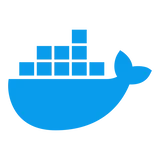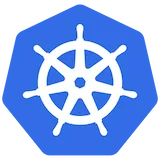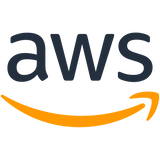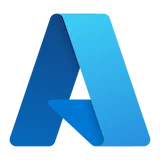
Service Scope
Golang Development Service We Offer
Bring your vision to life with end-to-end Golang development. Our expert Go team delivers scalable solutions built for today, ready for tomorrow.
Custom Golang App Development
Leverage the power of Golang for building concurrent and scalable solutions, ranging from simple web solutions to feature-rich mobile apps.
Golang Microservices Development
We develop powerful Golang software leveraging microservice architecture to simplify development, speed up delivery, and ensure seamless scalability.
Golang Consulting
With support from our expert Go software engineers, firms can gain guidance on software architecture, suitable tech stacks, third-party integration, and prototype delivery.
Cloud-Native App with Golang
Our Go experts design and deploy cloud-native apps across modern platforms like AWS, GCP, and Azure, optimizing for scalability and high concurrency.
Golang API Development
Get Golang-based APIs designed to handle heavy traffic loads with ease, enabling smooth integration with Go services and third-party systems.
Golang Support & Maintenance
We provide ongoing support for managing and operating Go services, backed by expert maintenance and proactive feedback to ensure long-term performance.
Why choose us
Proven Go Developers Committed to Your Success
Trusted by 100+ business worldwide, we are recognized for delivering top-tier Golang development services that drive results.
Hire Golang Experts Now
Top-Tier Go Specialists
Our Golang engineers deliver fast and reliable solutions, built with Go best practices and ready for growth.
Modern Tech, Minimal Cost
We cut costs by up to 50% using efficient infrastructure such as Hetzner, AWS Spot Instances, GolangReleaser & Crossplane.
Flexible Contracting Models
By offering flexible collaboration models tailored to your goals, we enable strategic adjustments and access to expert talents.
Guaranteed On-Time Delivery
We ensure every project stays on schedule through proven processes, agile workflows, and proactive communication.
Our Golang Projects
Orient Software Enhanced NTUC’s Technical Infrastructure with Golang
NTUC collaborated with Orient Software to overcome technical issues in their large-scale system. The project focused on modernizing the technology stack, and transitioning to scalable microservices using Golang programming language.
Read the full case study
Why Choose Golang for Your Back-End Development?
Simplicity
Golang’s clean syntax compiles efficiently and is easy to understand. Thus, our code is clean, easy to revise, and runs without explanation.
High Speed
Go is a faster language as compared to Python, Java, etc. Our experts leverage Golang to deliver high-performance apps with zero glitches.
Scalability
This language is highly scalable, enabling multiple functionalities to run concurrently during execution.
Comprehensiveness
With the capabilities of providing comprehensive tools set, Golang streamlines the development process.

Wonder What Golang Can Do for Your Business?
Contact Our Go Experts Now!

Golang Tech Stack & Platforms We Cover
We leverage a proven technology stack trusted by leading Golang development companies worldwide.

Gin

Echo

Fiber

PostgreSQL

MySQL

MariaDB

GORM

Docker

Kubernetes

GitHub

AWS

Google Cloud Platform

Microsoft Azure

GoLand

LiteIDE
Enabling Growth Across Industries with Our Services
Healthcare & Life Sciences
Financial Services
Information Technology
Insurance
Education
eCommerce
Travel & Hospitality
Human Resources
Retail
Manufacturing
Healthcare & Life Sciences
Financial Services
Information Technology
Insurance
Education
eCommerce
Travel & Hospitality
Human Resources
Retail
Manufacturing
Flexible Engagement Models to Power Your Go Project
Dedicated Go Team

Go Experts Augmentation

Professional Go Development Services

![Dedicated Go Team icon]() Dedicated Go Team
Dedicated Go Team
Get a skilled team, guided by our Golang project manager, to collaborate with your in-house team and drive faster project completion.

![Go Experts Augmentation icon]() Go Experts Augmentation
Go Experts Augmentation
Bring our Golang experts on board to seamlessly extend your team, fill critical skill gaps, and scale your development capacity.

![Professional Go Development Services icon]() Professional Go Development Services
Professional Go Development Services
With our seasoned Go developers handle the full SDLC, you can accelerate delivery and ensure Golang project success.

Unlock Elite Golang Talent in Just 2 Weeks
Quickly scale your team with top-tier Go developers ready to accelerate your project from day one.
20
Years in operation
100
Global clients

Full Name
Company
Tell us about your project
*By submitting this form, you have read and agreed to Orient Software's Term of Use and Privacy Statement
Frequently Asked Questions (FAQs)
What is Golang and Why It's Beneficial to Develop with Golang?
Golang, also known as Go, is an open-source programming language created by Google to simplify the process of building fast, scalable, and reliable software. Golang combines the best features of traditional programming languages with modern simplicity and efficiency.
At its core, Golang is known for its straightforward syntax, built-in concurrency support, and excellent performance. It compiles directly to machine code, ensuring fast execution, and is particularly suited for building complex systems such as web applications, microservices, cloud solutions, and distributed systems.
- High performance & speed: Go is a compiled language, which makes applications run faster compared to interpreted languages.
- Cross-platform development: Go software runs seamlessly across different operating systems, including Windows, Linux, and macOS, making it ideal for cross-platform solutions.
- Simple to understand and use: Go’s minimalist syntax ensures that code is easy to read, write, and maintain, reducing development time and improving team collaboration.
How Does Outsourcing to a Golang Development Company Work?
When you outsource to a Golang development company, you entrust a trusted external partner with the responsibility of delivering your software solutions. This approach offers flexible engagement models tailored to meet your specific business and technical needs.
You can choose to either augment your existing in-house team with skilled Golang developers—known as staff augmentation—or opt for full-cycle project outsourcing, where the partner company manages the entire development process from start to finish.
Throughout the engagement, the outsourcing partner leverages a variety of communication, collaboration, and project management tools to ensure you remain fully informed, actively involved, and in control of the project’s progress.
What Kind of Software Can You Develop Using Go?
Originally developed by Google engineers, Golang (or Go) has rapidly gained popularity as a go-to programming language for application development across diverse industries and sectors. Today, Go powers a wide variety of applications—including both web and mobile apps—spanning multiple domains and use cases.
Many globally recognized companies rely on Golang for its performance, scalability, and reliability. Notable examples include Netflix, Dropbox, Uber, Ethereum, Twitch, and Docker, all of which use Go to build and run high-performance, mission-critical applications.
How Can I Find the Right Team for My Go Development Project?
Begin by crafting a clear and detailed Golang developer job description to attract highly qualified candidates. Focus on essential requirements such as proven experience in Go development, strong problem-solving abilities, and effective communication skills.
To ensure you build the right team, consider reviewing portfolios, client testimonials, and professional recommendations. Conducting thorough technical interviews and assessments will help you identify top talent who can deliver high-quality, scalable solutions.







